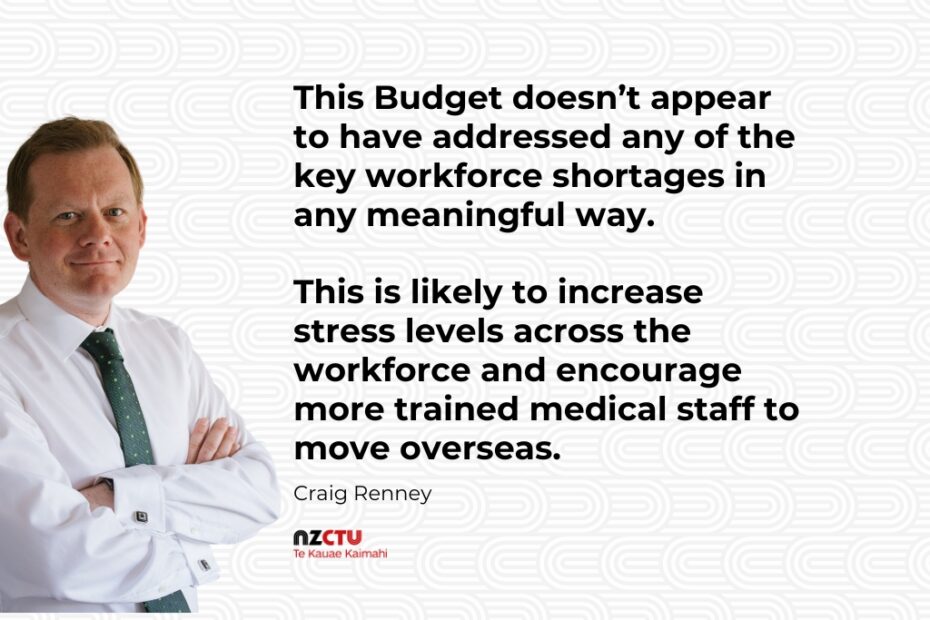The NZCTU has analysed the health spending at Budget 24 in conjunction with ASMS and NZNO. Health funding was central during the election campaign. All major political parties stated that they would increase health funding every year.
“This Government has added $93 million to health operating expenditure for the 2024/25 fiscal year on a net basis. This appears to be much less than the $2 billion of new operating expenditure claimed in the Budget. Much of that is not new money, it’s simply recycled expenditure. When adjusted for inflation, total operating expenditure fell by $775 million or nearly 3%,” said Craig Renney, NZCTU Economist and Director of Policy.
“With population growth, this figure becomes even more troubling. Per capita operational expenditure on health fell by 1.3%, and real per capita expenditure (i.e., adjusted for inflation) fell by 4.5% on current population projections.
“Many election promises were not delivered in Budget 2024, including:
- 13 new cancer drugs
- 50 additional doctors per year
- More nurses and midwives
- Funding a new medical school.
“As an example of the priorities within government, Budget 2024 commits more new money to funding security guards for A&E departments than to training new medical staff. We would question whether hospitals would need so much security if patients were being seen more quickly by doctors.
“This Budget doesn’t appear to have addressed any of the key workforce shortages in any meaningful way. This is likely to increase stress levels across the workforce and encourage more trained medical staff to move overseas.
“Budget 2025 will present another opportunity to address the shortages being generated by this Budget. The Coalition Government needs to take that opportunity to invest properly in health services and health workforces,” said Renney.
